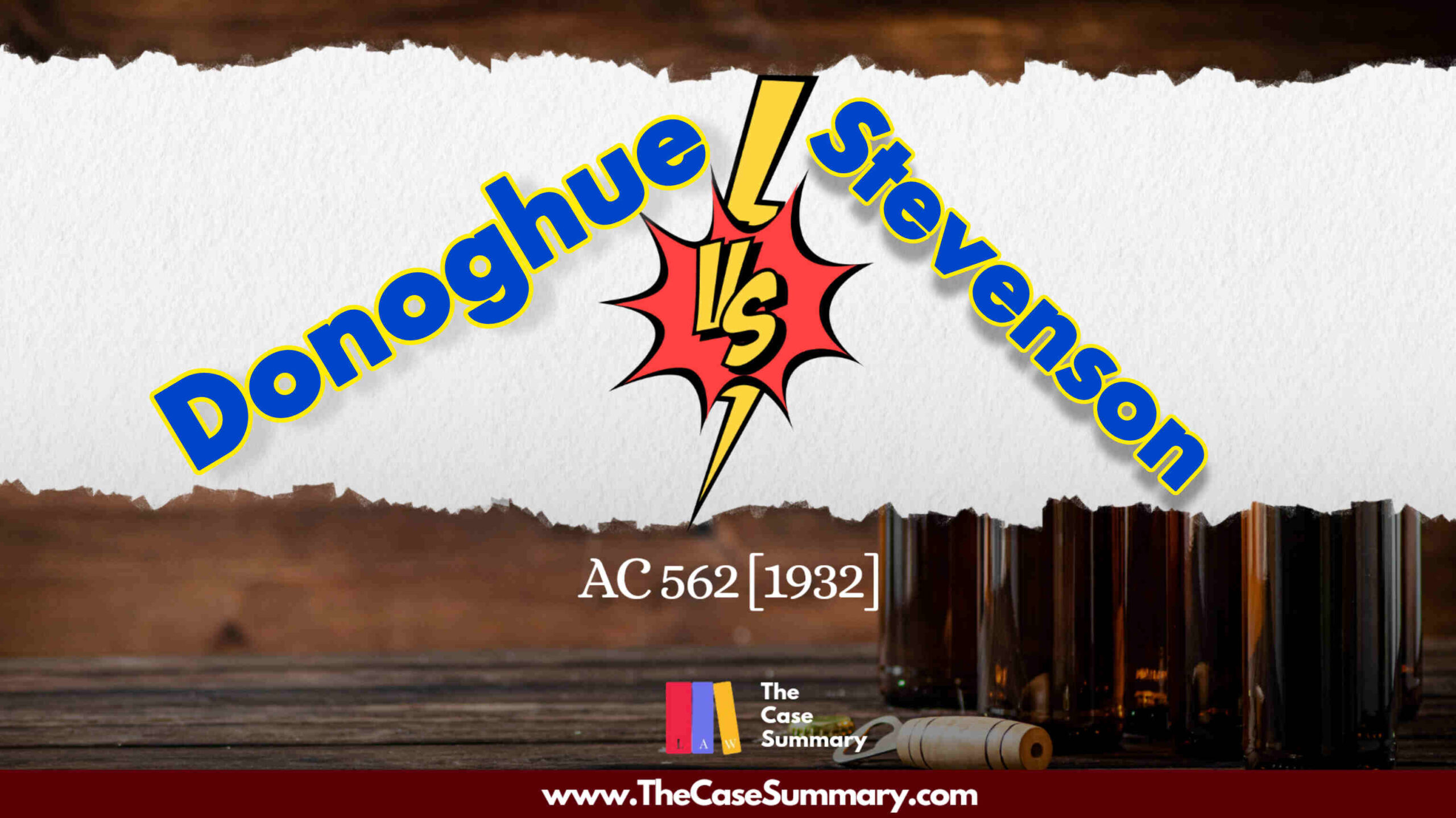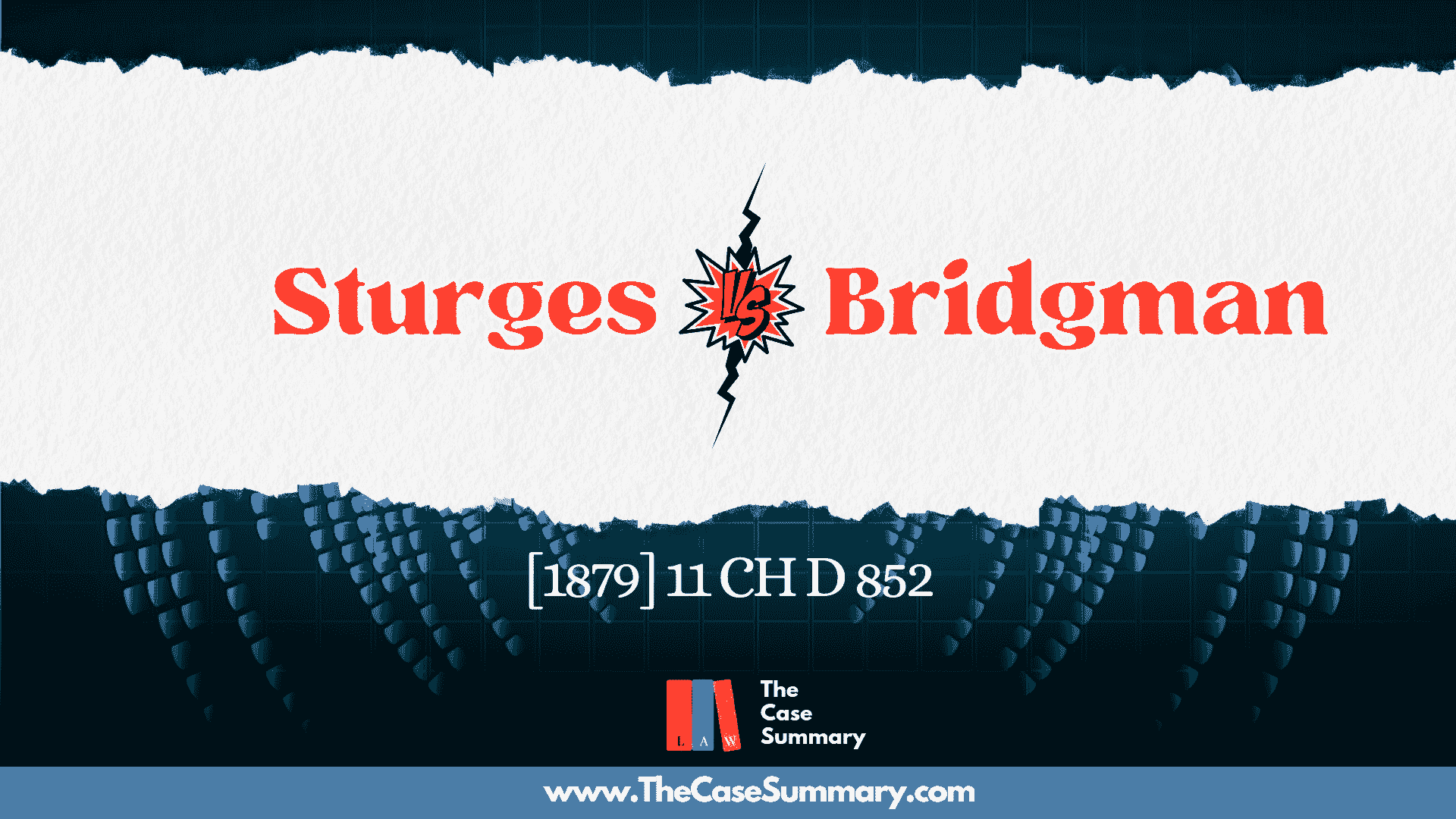Donoghue vs Stevenson
Reference : [1932] AC 562
Jurisdiction : England
Plaintiff : Donoghue
Defendant : Stevenson
Facts :
Donoghue, the plaintiff, and her friend went to a café called Well-Meadows Café in Paisley, Scotland, on 26.08.1928. Her friend ordered Paradise (a famous sweet of Scotland) for herself and a Scotsman ice cream float (mix of ice cream and ginger beer) for her friend, Mrs. Donoghue. The owner of the café served ice cream with ginger beer that was manufactured by the defendant. The bottle was sealed, and it was made of dark, opaque glass.
Donoghue drank some ice cream floats. Afterwards, her friend poured the remainder of the ginger beer. Unfortunately, it wasn’t just a ginger beer that came out. There was also a partly decomposed snail. At this point, Mrs. Donoghue alleged that she had suffered gastroenteritis and shock realizing what she had consumed. Accordingly, she claimed 500 Pounds from the manufacturer for his negligence under the law of tort.
Question of Law :
Did the manufacturer, Stevenson, owe a duty of care to Donoghue, the ultimate consumer, despite there being no contractual relationship between them?
Judgment :
The Trial Court
The plaintiff stated that she became ill after taking the ginger beer; therefore, the defendant was liable for negligence. On the other hand, the defendant argued that the plaintiff should have bought the beer after due scrutiny. The defendant contested that he was an owner of the company and he was not a manufacturer. Thus, he could not have reasonably foreseen the incident of a snail in the bottle. He also added that the bottle came into the hands of the plaintiff after being circulated through several other people. Hence, the defendant was not liable for negligence because there was no duty of care.
The Court of Scotland said that the manufacturer did not owe any legal duty to be careful towards any customer, including the plaintiff. Thus, the case was dismissed.
The suit was then brought before the Appellate Committee of the House of Lords.
The Appeal Court
The plaintiff-appellant won the suit successfully by a 3-2 majority before the Appeal Court. Lord Atkin, who pronounced the final judgment, gave five critical elements in his judgment :
- It was established that negligence is a separate tort in its own right.
- The manufacturer would owe a duty of care to the final consumer. This is commonly referred to as the ‘narrow ratio’ of the case.
- ❝The Neighbor Principle❞ was introduced. The method of determining the existence of a duty is the so-called ‘neighbor principle’.
- Lack of privity of contract (privity of contract means “the law does not allow a stranger to file a suit on the contract”) did not prevent the claimant from claiming.
- Negligence would be proved by satisfying a “Three Part Test.”
Lord Atkin addressed the issue of identifying a neighbor in law. According to him, ❝persons who are so closely and directly affected by my act that I ought reasonably to have them in my contemplation as being affected so when I am directing my mind to the acts or omissions in question.❞ He also added, ❝You must take reasonable care to avoid acts or omissions which you can reasonably foresee would be likely to injure your neighbor.❞
The court addressed that plaintiff took reasonable care. On the other side, being the owner of the company, the defendant had the duty of care towards the plaintiff. Hence, Mrs. Donoghue was awarded damages. She awarded 200 pounds as compensation.
Author :
1. Farah Arifin
Note: The Case Summary is a platform by the law students, for the law students. We aim to summarize the facts and decisions of various important cases in both Bangla and English with utmost caution. However, this platform is in no way a replacement for going through the complete judgements by the law students and we discourage any learner from relying on case summaries alone. Thank you



